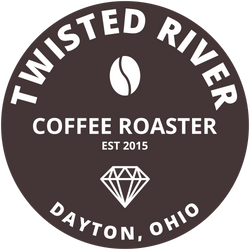December 2024
Costa Rica San Diego Jaguar Honey

Elevation: 1200-1750 meters above sea level
Grade: SHB EP (Strictly Hard Bean, European Preparation)
Region: Tarrazú
Varietal: Caturra, Catuai
Process: Honey
Cup Score: 85
Tasting Notes: Raspberry, Plum, Clementine, Almond, Honey
From the Tarrazú region of Costa Rica, a canton of the San José Province. Located on the Northern edge of the "Cordillera de Talamanca" (Talamanca Mountain Range), Tarrazú is the most famous (and highest-producing) coffee growing region in Costa Rica. Tarrazú’s climate is characterized by two well-defined seasons; a rainy season lasting seven months (May through November) and a dry season (December through April).
On average, precipitation for the region is 2,400 millimeters (94.5 inches) per year. The red clay soil, humid climate, and tropical temperatures with an average of 24ºC (75ºF) help nurture some of the best coffee in Costa Rica.
The San Diego Mill is the most modern mill in Costa Rica. Established in 1888, San Diego has been innovating for well over a century. Today San Diego specializes in coffees from the Tarrazú and Tres Rios regions. The mill takes pride in striving for ever increasing efficiency and quality standards. At the same time the mill has taken a leading role in working with producers to ensure good community relations and sustainable production.
What's a honey process?
The honey process started in Costa Rica and has since spread to other countries in Central America. In this process some or all of the mucilage of the coffee cherry - or coffee honey - that coats the parchment is left on during the drying stage, giving the coffee a sweetness that resembles a natural. This process allows the natural sugars to enhance the coffees sweetness. The coffee is then dried on African beds or patios, allowing the coffee to dry in a slow and even way.
Because less of the coffee fruit is washed off, it requires significantly less water than both the washed or natural processes, making it more environmentally friendly.
Speaking of environmentally friendly:
Why is it called "Jaguar"?
Glad you asked! A portion of every sale (from the San Diego Mill to coffee roasters like Twisted River) is donated to the Fundación Pro Zoológicos (FUNDAZOO) in Costa Rica to support the local jaguar population!
Based in Costa Rica, Fundazoo is a conservation nonprofit foundation that protects and promotes the natural biodiversity of Costa Rica. Responsible for several zoos and national parks in the country, Fundazoo bases its work on three pillars: research, habitat management and education. Very active in the global scene, Fundazoo works hand in hand with the International Union for Conservation of Nature (IUCN).
Jaguars are an important, but endangered species in the Costa Rican ecosystem. They are what conservationists call an ‘umbrella species’, meaning their conservation ensures the protection of many other species. Jaguars need a lot of space to live and migrate across Central and South America. Migration is the source of their reproduction. Due to human-made developments, the migration routes of jaguars have been severely disrupted.
We hope you enjoy, and feel good supporting this Eco-friendly coffee!
